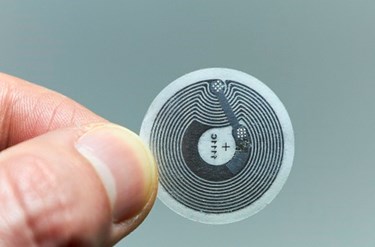Magic Bands: From Disney To Healthcare

By Christine Kern, contributing writer

Will the Magic Band technology be coming to healthcare soon?
In 2013, Disney introduced MagicBands as part of their theme park experience. These RFID-enabled wristbands function as tickets, “FastPasses” to cut long lines, and hotel room keys. They also allow visitors to connect images to their accounts, and automatically charge food and merchandise to their Disney Resort hotel rooms.
But they also store personal information and preferences, allowing theme park characters to approach visitors already knowing that they are fans or are celebrating a special celebration. The nearby gift shop attendant can steer the birthday girl to her favorite character doll, and her parents can just show their wrist to pay for it, since the MagicBand also has credit card information stored.
MagicBands represent what’s coming in digital: the convergence of mobile, big data, and personalization to drive truly superior user experiences. Mobile, from smartphones or wearables, provides geodata in real time. When companies combine those components with the wealth of customer information they possess, the result creates powerful solutions for users resulting in increased engagement and ultimately more sales. Soon, customers will likely expect that level of integration and prefer the brands sophisticated enough to offer it.
So now imagine that technology brought to the healthcare experience. Patient data would be loaded onto the bands, using the same RFID-enabled functions. Medications, food allergies and restrictions, medical conditions, emergency contact information, scheduled procedures and appointments all could be loaded onto the wristband, creating the much-desired interoperability that is the goal of modern healthcare. Even visitor schedules and things like flower preferences could be loaded onto the wristbands for convenience. Does the patient need a new book? With credit card and insurance information already downloaded on the wristband, the gift shop can send one up tout suite.
One company, Alvin Systems, is taking that plunge. According to a document released by Alvin Systems, “For healthcare organizations, RFID is the next inevitable step towards the new generation healthcare services operations and it is set to provide new efficiencies, improved services, enhanced healthcare workflow and increased patient care for organizations seeking competitive advantage.”
The company offers the “Alvin RFID and Wireless Software Platform for Healthcare,” a patient/object/asset identification and tracking solution specifically designed to integrate with existing Hospital Information Systems (HIS). This RFID system has been designed to support real-world use-cases, including:
- positive patient identification and real-time information system based on “Smart RFID Wristbands”
- medical item/asset identification and tracking
- specimen collection/identification and matching with patient Smart Blood Transfusion identification and management, medication identification and administration, and tracking and management of mobile medical assets
- temperature monitoring of sensitive items such as blood, laboratory items, vials, medicine, specimen
Among the many benefits of adoption of the system are:
- real-time and accurate identification and information system
- increased productivity, enhanced healthcare workflow
- reduced error-prone, paper-bound administrative processes
- prevented patient identity mix-ups and medication errors
- intelligent identification and administration of specimen, blood, assets and laboratory processes
- increased patient care and satisfaction
Ultimately, regardless of the form factor, increasing customer expectations of improved user experiences will force every brand to invest significantly in mobile convergence. While the cost, at least for early adopters, can be high (Venture Beat estimates Disney’s MagicBands investment to be $800 million to $1 billion), the potential payoff could be bigger. And for healthcare providers, the benefits would far surpass the monetary figure as they moved to ensure better efficiency and quality of patient care.
